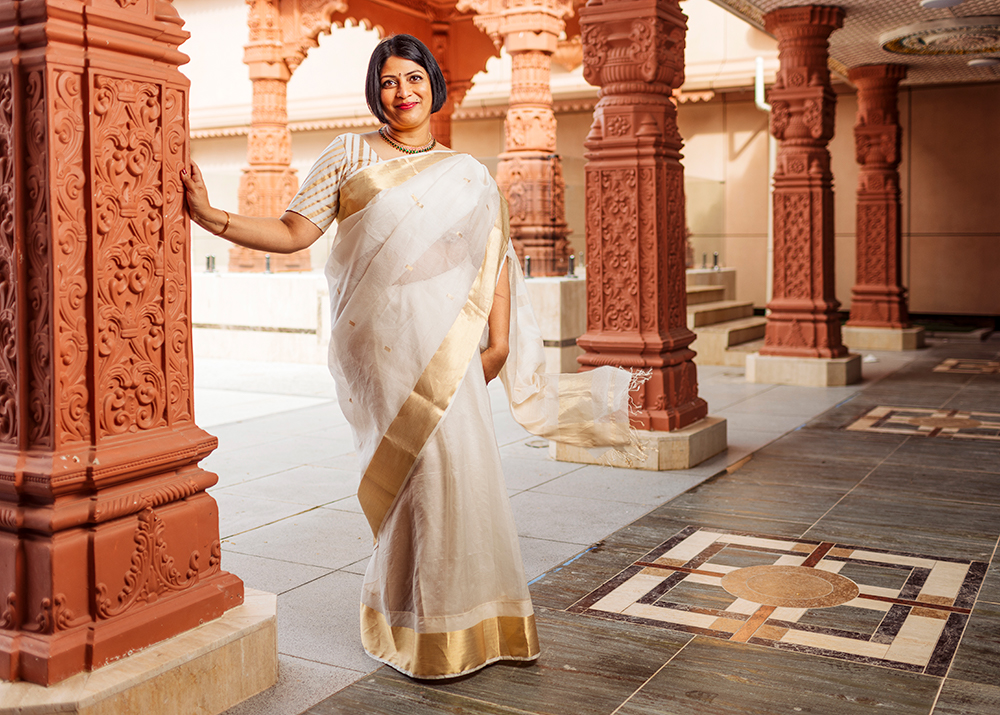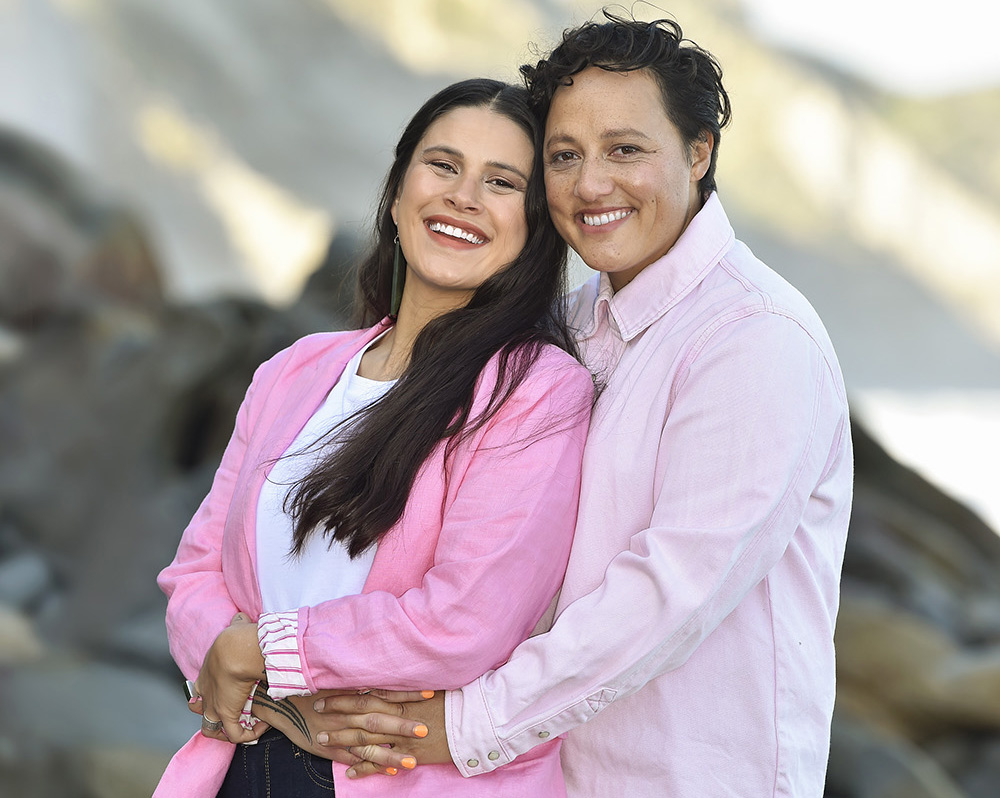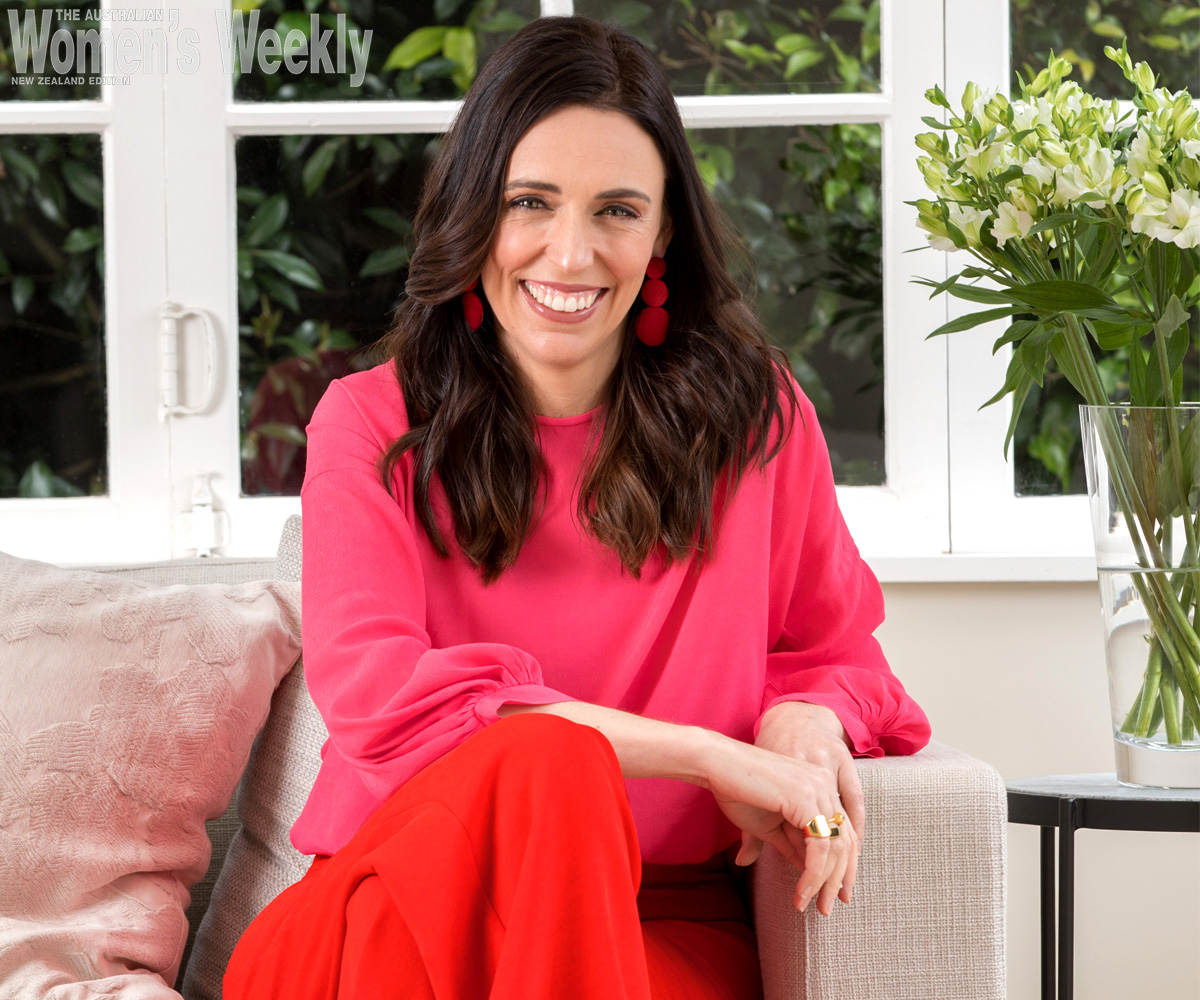She’s travelled the world, advocated for issues like domestic violence, emigrated to Aotearoa, found love outside a shoe shop and is New Zealand’s first minister of Indian descent. But of all the interesting topics people could raise when meeting Priyanca Radhakrishnan, there’s one question she can’t shake: “When are you having kids?”
The 43-year-old politician and her husband Ewan Richardson have happily built a life without children, yet Priyanca frequently finds herself interrogated over the decision.
“At the start, it was very much, ‘Why don’t you have children?'” says the Aucklander. “Now people assume I have kids, but I still get, ‘You don’t know what you’re missing’, or, ‘A woman’s role is to raise children.’ People say I’m wasting my life or that Ewan and I would make good parents and are being selfish.

With husband Ewan and dogs Mika (left) and Gypsy.
“If you don’t have children, the onus is on you to explain why, which is unfair because it’s as valid a choice as choosing to have children.
“It’s tiresome having to constantly explain – and it’s not a justification expected of my male colleagues.”
Born in Chennai, India, Priyanca and her older sister Manavi grew up in Singapore (on a street called One Tree Hill – the name of the Auckland region she’s now MP for), where her parents Raman and Usha worked. A “girly girl” who loved playing house with her dolls, she imagined becoming a mum.
“I saw married women had children and assumed someday that would be me,” she recalls. “But as I grew up, I started questioning parenthood. I had friends talking about their biological clocks ticking and couldn’t relate. People said I would eventually experience a desire to have children, but that never happened.”
It’s a choice that defies traditional Indian expectations, but Priyanca’s life has always been a colourful merging of Western and Asian influence.
As a child, she adored saris, loved Indian food and heard ABBA as much as Bollywood music at home. While her parents weren’t super-traditional, the culture remained prominent – as did some of its common restrictions.
“Boys were a no-no, so I wasn’t allowed to date. I rebelled and often got caught!”
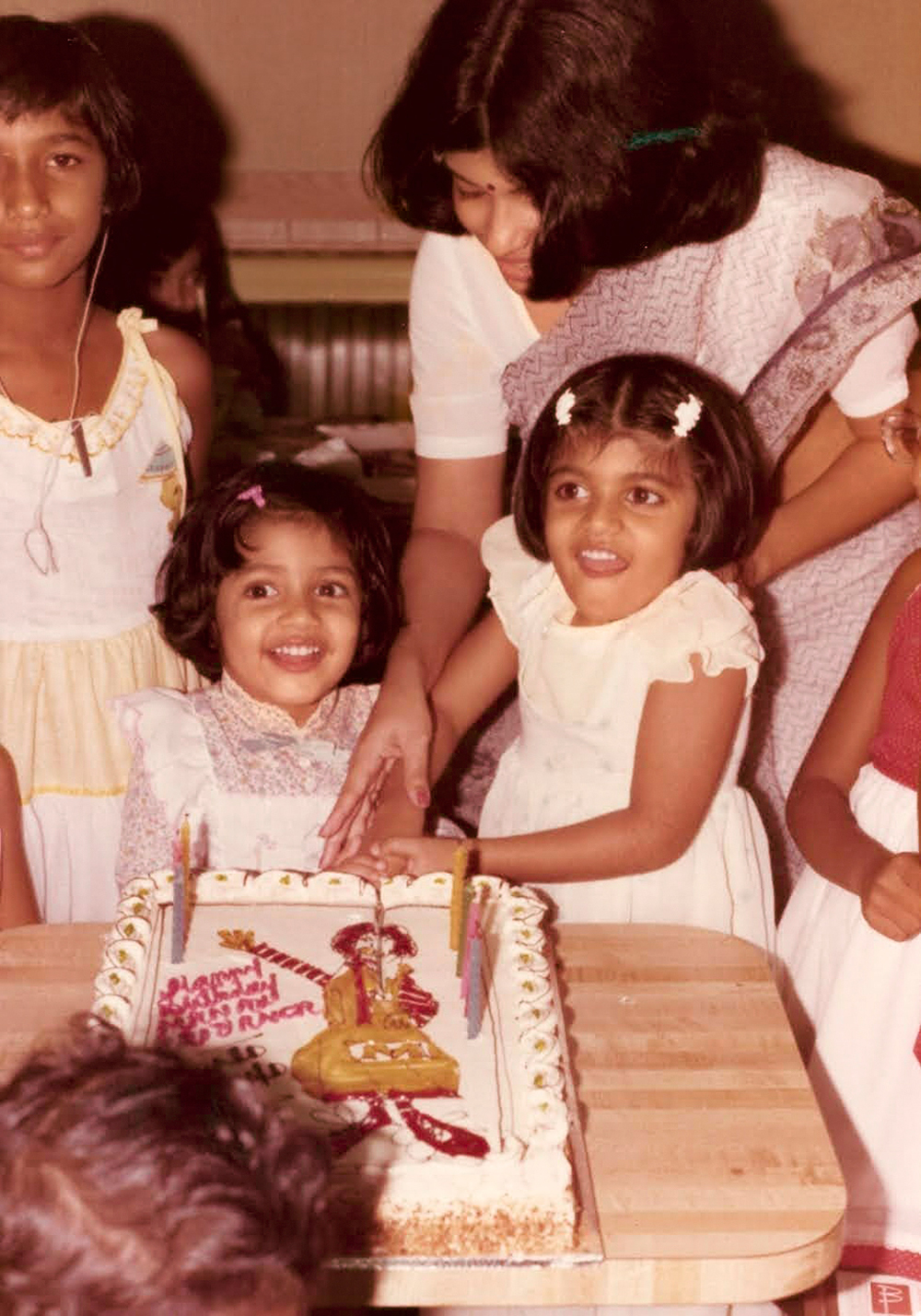
Making a wish on her third birthday with sister Manavi.
Chances are Priyanca had no problem defending her dating rights any time she was sprung – her debating skills were carved out over dinner table discussions about current events. Meanwhile, her parents’ volunteer efforts – helping children in need and sponsoring orphans – made an impression.
At eight, she accompanied them to visit a hospitalised construction worker. “It highlighted inequities and how the work conditions his employer provided were substandard.”
Such moments instilled a strong sense of social justice and she later began working with a women’s rights organisation, sparking an interest in sociology, which she moved to Palmerston North to study in 2004.
Kiwi life was an adjustment. “I remember being asked to bring a plate to a pot luck and taking an empty plate,” she laughs. “And figuring out what jandals were!”

Getting a job at women’s charity Shakti, Aotearoa quickly became home and where she found love with Ewan, after a friend set them up in what they joke was an “arranged marriage”. After chatting on Facebook, they met outside a shoe shop in Wellington, where Priyanca had moved to open Shakti’s Wellington refuge and pursue her master’s degree.
She tells, “I took that as a sign because I like shoes! We got along really well, shared similar values, and he was honest and kind. I was a commitment-phobe and never thought about settling down, but with Ewan, it was easy.”
While some Indian parents still expect their children to marry within their community or caste, Priyanca’s parents only cared she was with a “good human”. Nor did they pressure her to give them grandkids.
“My mother said in her early twenties, no one talked about children as a choice. It was the socially expected thing. She was supportive of me examining whether it was something I wanted
and encouraged me to not just have children because it was expected.”
After much thought, Priyanca felt ambivalent – she loved hanging with friends’ babies and enjoyed caring for kids while running a refuge, but she didn’t feel strongly about having her own. She decided she’d only do so if her future partner firmly wished to.
However, Ewan, who works in IT, didn’t have dreams of fatherhood, so they comfortably chose to remain child-free.
The couple got engaged over Christmas 2009 after buying a home together in Wairarapa.
“We were at his parents’ house and he said very unromantically, ‘We’ve bought a house – why don’t we get married now?’ I was like, ‘Oh, yeah, cool’. But it was exciting because I’d thought about my wedding since I was little.”
They exchanged their vows at Hanmer Springs in 2010, incorporating an Indian tradition where the groom presents a gift (usually a sari) on a brass plate.
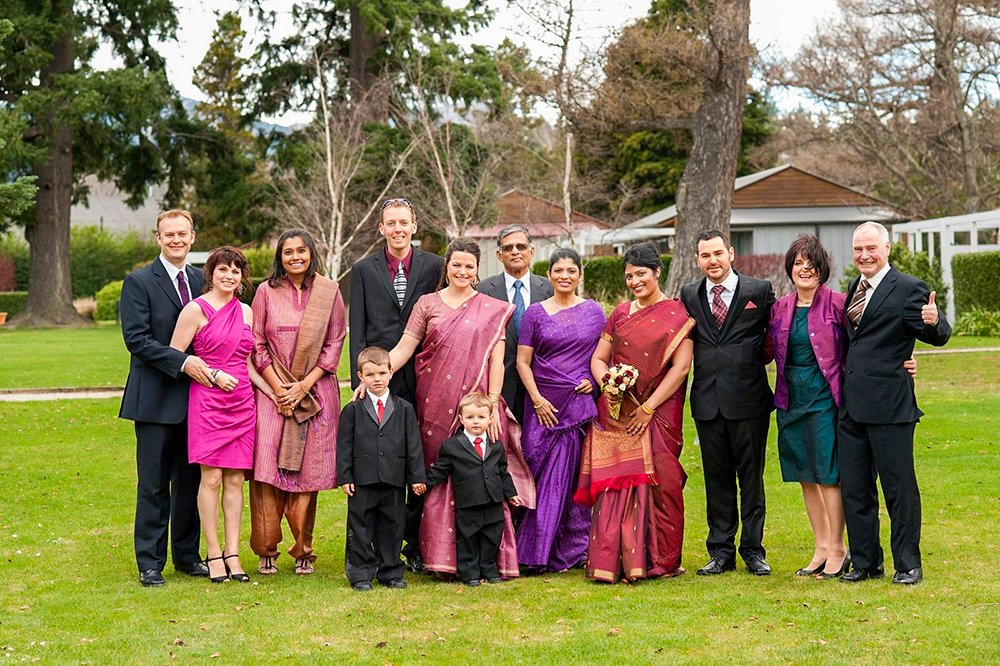
The couple’s wedding in 2010 celebrated both their cultures.
“In true Kiwi fashion, he got me a Merino jersey instead, which was lovely, but my mother wasn’t impressed because it was brown and didn’t look pretty on the brass plate!” says Priyanca, who wore a sari.
Ewan, 42, has also supported Priyanca through her political career, which was sparked by working at Shakti, where she became involved in campaigning for her boss, Farida Sultana, who stood for Labour in 2008. Realising how strongly the party’s values resonated with her, Priyanca continued volunteering but never fathomed entering Parliament. “As a new migrant, a political career wasn’t top of mind!”
Yet her work at Shakti (like lobbying for policy change and submitting proposals) created a natural path to the Beehive.
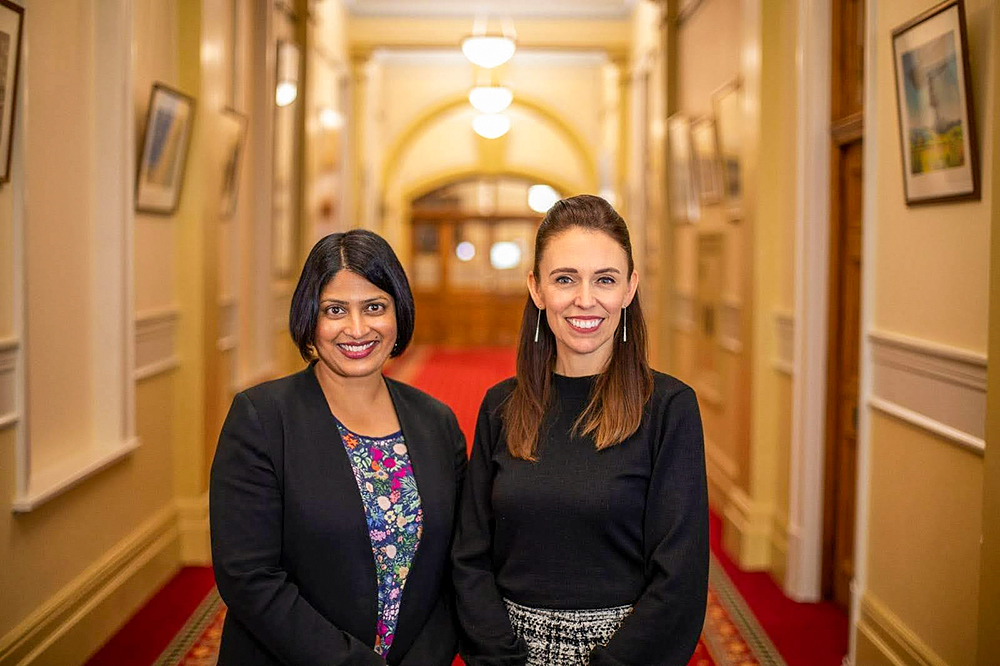
Working with PM Jacinda is “a huge privilege”.
“Many of the women were new migrants, who weren’t able to identify the abuse they went through as abuse, let alone understand their rights,” explains Priyanca, whose grandfather was involved in politics and played an instrumental role in forming India’s Kerala state.
“There’s a stigma across many communities about speaking up about domestic and sexual violence because these communities already feel marginalised, but these issues needed to be talked about,” she asserts.
Such issues remain a priority for Priyanca, who became MP for Maungakiekie in 2017 and is now Minister for the Community & Voluntary Sector, Youth, and Diversity, Inclusion & Ethnic Communities.
She doesn’t believe not having children has helped or hindered her career and feels well-qualified for the Youth portfolio. “There’s a sense you only understand what’s best for children if you’ve had children, but I’ve had lots to do with children, whether it’s nephews, my niece or running a refuge.”
If there’s one person who’s never doubted Priyanca’s capabilities, it’s Prime Minister Jacinda Ardern, who was by her side as she was inducted into the Kiwi-Indian Hall of Fame. She also promoted Priyanca into Cabinet in June.
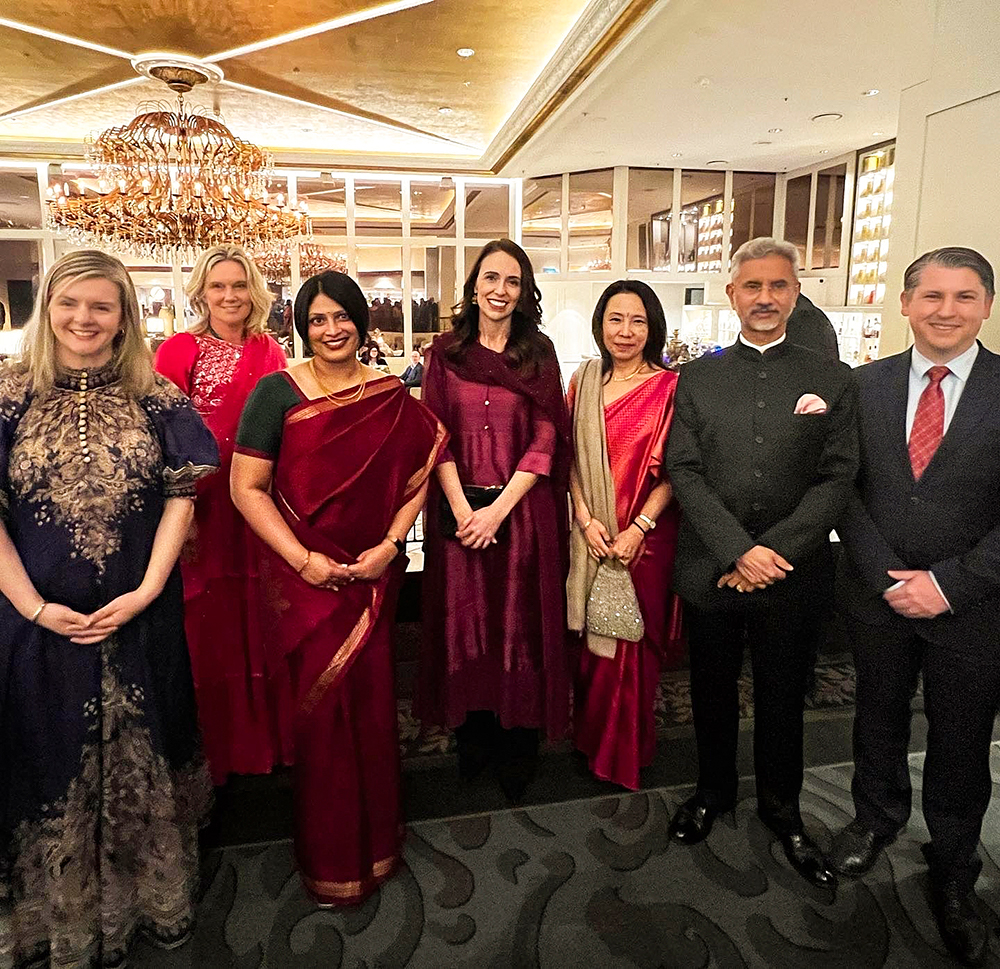
Being inducted into the Kiwi-Indian Hall of Fame.
“It’s a massive privilege and says a lot about the system in New Zealand that someone who came to this country as a young migrant woman can get involved in the political system and be part of the decision-making table at Cabinet!”
